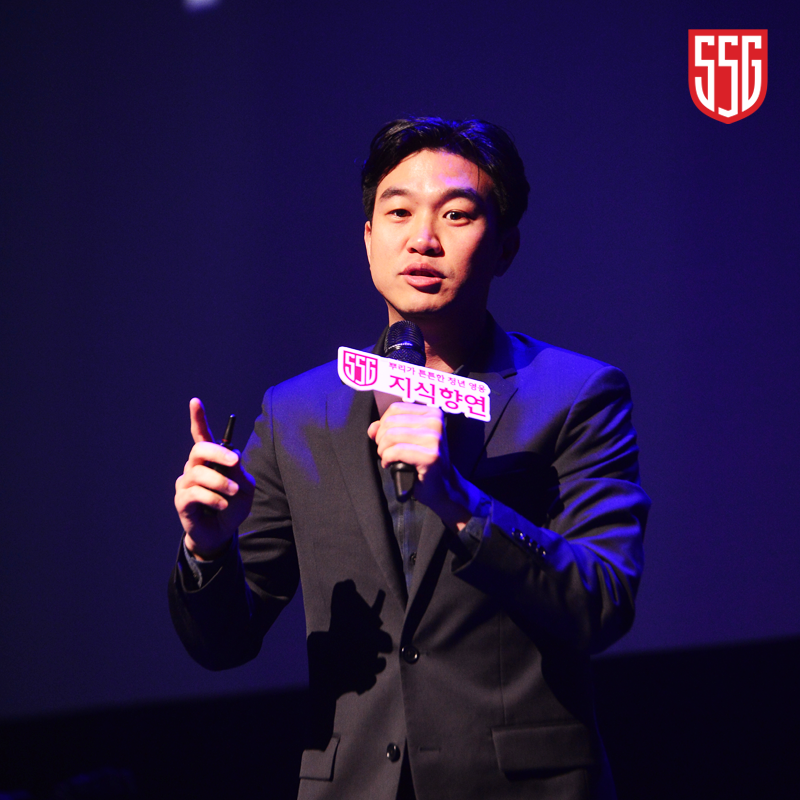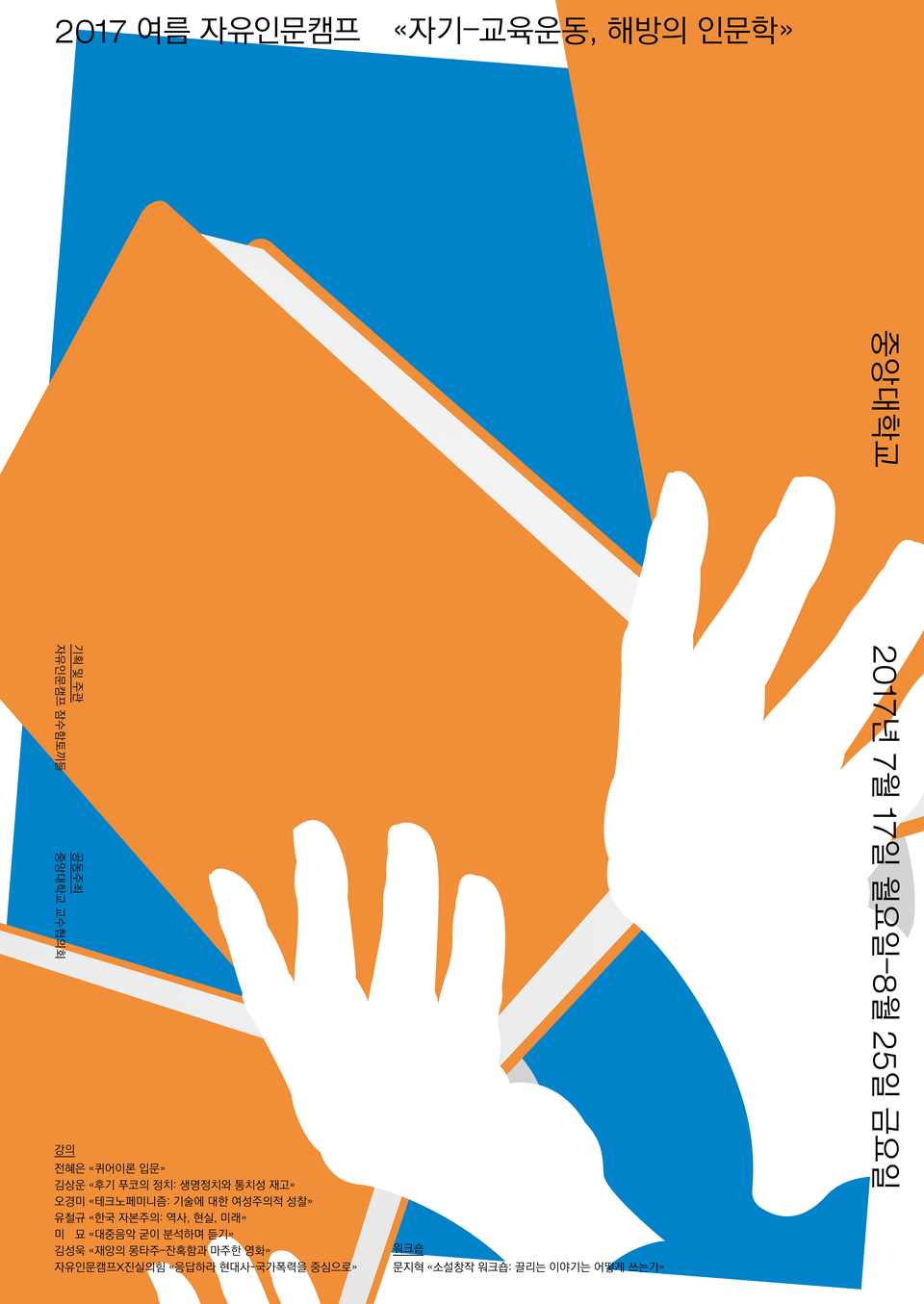Debating, thinking, and questioning are all basics of humanities lectures. Universities in South Korea consider this the foundation of liberal arts, and arguably today’s programs are lacking this kind of educational atmosphere. A 2014 EBS documentary entitled, ‘Why do we go to University?’, pointed out that discussions during lectures were on the decline and in its place we were seeing mainly one-way lectures by professors. With silence in the lecture room, the humanities are being considered non-practical areas of study. Furthermore, due to the growing focus on employment issues by today’s colleges, the priority of the university has shifted towards specific knowledge for jobs; and away from its original purpose which was to develop the critical thinking abilities of students. However, despite this shift in focus and drop in importance of the humanities, there are still some valuable programs available that help students understand the importance of studying humanities as they teach them how to understand the society as a whole, in a better way.
 |
| ▲ A writer,Cho Seung-yeun, lectures for SSGHero program in Je-ju National University. (Copyright by SSGHero.) |
Shinsegae Group, a major company in Korea, launched a humanities program called the ‘Shinsegae Hero: a knowledge-fest’ (SSGHero) in 2014. SSGHero is a training program for educating the youth, especially university students, in a manner that helps them build their talents in the humanities with a more critical way of thinking. The theory is that the arts, spread knowledge and wisdom, and can expand your education by focusing on selected themes. Since the launching of the project, SSGHero has held lectures in the field of humanities, hosted by writer Cho Seung-yeun and robot engineer Denis Hong. These lectures were held in 38 universities, reaching more than 35 thousand students. SSGHero’s camps have also hosted 400 university students to date. They conducted diverse programs such as introducing required reading, and offer a grand tour traveling to abroad, fully fund by Shinsegae Group. They hold lectures every year, from April to June, recruiting participants from universities across the country. All the SS
SGHeroes take part in the grand tour in August. Previous lectures have been uploaded the website of SSGHero (http://www.ssghero.com), as well as to the websites of TV broadcasters SBS, CNBC and Naver TV Cast.
In Busan, Humancamp (http://cafe.naver.com/humancamp) lead by university students from the area since 2012, and supported by the Haeundae-gu Office, Bu-kyeong University and Busan Cultural Foundation hosts a two night, three days humanities camp every summer and winter vacation that is open to all university students. During the last Humancamp, in January 2017, organizers ran a baccalaureate or the French SAT which included tests on the humanities, a 1980 Humanities Café, a self-examination program, and hosted discussions about reality and liberal arts. The camp also held lectures by several writers and CEOs emphasizing the importance of humanities for this generation. At the end of the camp, participants earned a certification from the head of Haeundae-gu and the Busan Cultural Foundation.
Freecamp (http://www.freecamp.kr/) is another voluntary program for university students, held every year since it was launched in 2010. The Dankook Herald conducted a written interview with Ahn Tae-jin (senior, the Department of Sociology, Chung-ang University) about The Rabbits on Submarine, a voluntary association that host lectures in the humanities at Freecamp, led by Chung-ang University students. Freecamp holds the program every summer and winter vacation, and produces 6-8 serial education programs in the humanities, arts and society for each season. Moreover, Freecamp has single session open sessions where participants talk about books, host a documetary night, and discuss issues from The Periscope, an independent journal produced by the Rabbits on Submarine. Freecamp selects topics based on what participants of the association read and talked about. Moreover, it publicizes their opinions or conversations both on and offline.
 |
| ▲ A poster of the Freecamp Summer Programs in 2017. |
Ahn stated, “They sometimes host interesting lectures that cannot be accessed under the pre-existing conditions of a university.” During last summer’s program, there were lectures about political economics, techno-feminism, queer theories and a novel-writing workshop. High accessibility is one of the biggest advantages as lectures fees come at a low price. The lectures are open to everyone interested in the subject. One of the students of Freecamp, whom she met after a lecture stated, “I learned a lot of things at Freecamp, more than I had learned in my 4 years at college.”
Freecamp was established to combat the shift in focus away from the humanities at Chung-ang University, after Doosan Group took over their foundation. Ahn said, “Freecamp is a meaningful, voluntary gathering of undergraduates and graduates. We plan many critical lectures, because, we want to provide a different study directions from universities that mainly focus on convenience class for management. That is why we offered The Periscope to encourage more diverse discussions. We wanted Freecamp to be used as a public-political field beyond offering simply humanities lectures.”
These programs help students remember the founding principles of higher education. For Dankookians seeking greater access to knowledge than our college has to offer and want to talk with others who don’t necessarily share your global perspective, these lectures and programs can be a great meeting point for you as they mesh important knowledge and wider insight all for you to absorb in a meaningful environment.
박해지 dankookherald@gmail.com

![[Campus Magnifier] Let's Surf the Library!](/news/photo/202404/12496_1765_4143.jpg) [Campus Magnifier] Let's Surf the Library!
[Campus Magnifier] Let's Surf the Library!
![[Campus Magnifier] Let's Surf the Library!](/news/thumbnail/202404/12496_1765_4143_v150.jpg)





